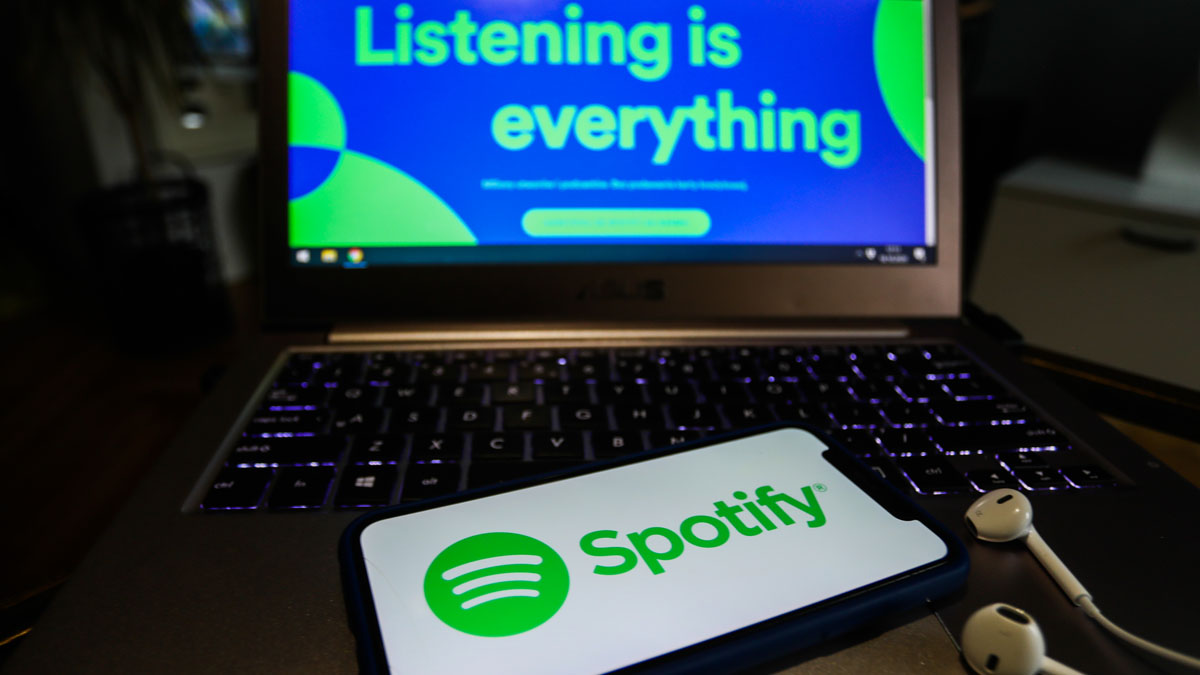“When we signed a record deal with Warner Brothers, she was cleaning toilets on the same day”: Will the rocketing cost of being a musician eventually kill the industry?
A deep dive into the economics of being a music-maker in the 2020s

In the not too distant past, many young people were first lured onto the road to become musicians by the compelling motivation that if they worked hard enough, immense rewards would follow. How many guitar or drum-learning kids, growing up in the last four decades of the 20th century, were comforted by this notion? It was an idea that reassured, and took the sting out of the dispiriting trial of playing those nerve-wracking early gigs in the tiniest backrooms of pubs.
With the uphill-struggle dynamic lodged in their minds, amateur musicians secretly knew this was only the first step - the very beginning of a journey that would ultimately lead to an all too grateful major label taking note.
This idea could uplift even the grimmest situations, reinforced by many of those foundational perseverance-paying-off legends in the annals of music history, such as The Beatles’ legendary two-year gig-binge in the clubs of Hamburg.
Of course, despite the psychology of it all, one-day, having being worth it, for the vast majority of musicians fame and rich rewards were never to be found. But, for every few million failed wannabe idols, there were stories like that of Ed Sheeran; famously putting in 300+ pre-fame gigs, handling his own promotion and being seized upon by Asylum/Atlantic in 2011. It’s a tale that underlined the central covenant artists had with the industry; with the right level of time and effort, you too could achieve major recognition.
In the 2020s, music-makers face a very different reality. As the traditional major label-oriented pathway becomes untenable to many, self-writing, releasing, promoting and touring artists and bands now face a future where the summit of their appeal might have a far lower ceiling than before. Compounding this dispiriting state-of-affairs comes the sad reality that the cost of being a musician and artist is only rocketing.
In 2022, UK charity Help Musicians surveyed 525 musicians and found that half of that number were either ‘extremely’ or ‘very’ concerned that they’ll be forced to leave the industry, citing equipment costs and the general upwards trend in the cost of living as major factors. In 2023, a further census detailed that "30% of musicians report low mental wellbeing, with those at the start of their career most impacted".
Added to that, the lack of viable profits to be gained from streaming or touring at a grassroots level (and the cost required to make a foothold) mean that increasingly, aspiring musicians are presented with a bleak vision of their industry. Unsurprisingly, this state of affairs is having on impact on those that are trying to launch themselves as an artist (a tough ambition at any point in history).

“The knock-on impact of derailed careers and financial stress is shockingly high mental health issues within the industry.” So states Help Musicians on a report on their 2022 study. “Nearly nine in ten (88%) believe difficulties with their mental health is currently affecting their work, with 68% saying their mental health is worse than before the pandemic. Help Musicians has also seen a 34% increase in calls to Music Minds Matter, its mental health-focused sister charity.”
The critical ingredient bubbling away in this depressing cauldron is the oft-cited lack of funds that artists receive via streaming. In an online census conducted by Right Chord Music, numerous payment issues were highlighted by 300 artists over 64 countries as being a pivotal concern for grassroots musicians. 'I honestly don’t know if I get paid the money I’m owed,' and, 'I definitely don’t get paid the money I’m owed' made up two-thirds of the responses from musicians, with other responses ranging from ‘it’s so bl**dy complicated!’ To 'I pay more than I make'.
We spoke to Mark Knight, the Founder of Right Chord Music to learn more about the census, and why people are so baffled by the payment structure of the modern industry. “I've been running Right Chord Music since 2010 and it's always been a hub of unsigned, independent artists. We did a similar census around ten years ago, and I realised that it had been a long time since we did that research. A lot has changed in that time," Mark tells us.
Want all the hottest music and gear news, reviews, deals, features and more, direct to your inbox? Sign up here.
Mark puts much of the confusion down to the extra stresses artists now have to take on when managing their own finances. It's particularly challenging for bands.“So, if you think about it, a four-piece band might write a song. They could all have equal share of that song, or they could have different splits of that song.
"On an album of 10 tracks, for example, the ownership of those 10 tracks could be completely different every time. What happens at the moment is typically one member of that band has to play the role of accountant. It could be the drummer, or the bass player, and their job is to keep track of the money coming in, and then divide it up according to the splits that have been agreed with the various members of the band or any featured artists.
"Because it’s manual, money often doesn't end up going to the right people. A lot of the distribution companies will now do splits, so for example, if you use Distrokid, you can create splits with your band. But, to do that you have to have four different Distrokid accounts. You can't just have one account.”
Knight says that the designated ‘book-keeper’ of a band could just log back in and change the split, and nobody would be any the wiser. “One musician told us, that the moment he has to collaborate with people he winces [when he thinks about the split]. So that's a big reason, really - they don't know. Has Jim the drummer [and designated book-keeper] actually kept track of the money coming in, and divided it equally according to the shares they agreed?”

Beyond the trials of keeping on top of the money, and individual musician’s rights, both bands and solo artists have to face the reality that the actual streaming revenue income is fairly piddling anyway. “There's a point where you go, Well, is it worth sending him 20p? Oh, you won’t,” says Mark.
Whether you’re in a band, or a solo artist, Mark also points to the cost of getting music actually heard these days, “Probably around ten years ago, the way you promoted music as an independent artist was that you could run Facebook ads or Instagram ads, and it would drive the person to a landing page where users could click a link to go to Spotify and then hopefully listen to your track for 20 seconds or more, which would register as a stream.
"What happened about five years ago is Apple changed its Privacy Policy, so then half of the users on Facebook just weren't accessible. The cost of advertising then went sky high. Back then, the cost of a conversion would, on a good day, be about 10p, right? But getting someone to that same link after the Apple change hiked up the cost to something like four pounds.
"Now, if you bear in mind that the money you're getting back from that stream is 0.03p, then you've already spent way more than you're going to earn back. Now, I can't think of another category on earth that you lose money in order to get a customer.”
Mark makes a comparison to other sectors; “If we're selling Nike trainers, you've got probably £90 to play with before you lose money. If you're selling a car, you've got, you know, £20,000 to play with before you lose money.
"As a musician, you've lost money before you've even got off the ground.”
The other side of the musician’s earning coin, aside from direct sale/stream of music is of course the live world. With the grassroots sector facing increasing stress as venues shutter across the world, bodies such as the Music Venue Trust work tirelessly to stem the decline and ring-fence this pivotal arm in the development of musicians and bands. Not to mention a key revenue stream.
Central to their mission to reinvest in grassroots venues is their central pledge; “Music Venue Trust has been campaigning for the upper echelons of the music industry to reinvest in the grassroots for the past 5 years.
"Our proposal is simple: Every ticket sold at arena and stadium level contains a levy as a financial contribution back into the grassroots.We are asking artists to pledge that their future success will acknowledge where they came from and contribute a small amount of money back into the grassroots sector, if and when they reach arena and major festival level. We want to ensure that the talent pipeline is supported, offering opportunities to a wide range of aspiring musicians from across the UK, so that everyone who dreams of being a musician feels that is a possibility for them.”

That final part raises a crucial point – how can the next generation of musicians find their audience, and learn their live chops without that essential grassroots venue structure?
A band that some in the UK press are dubbing the saviours of guitar-based music in the UK are Wigan-hailing The Lottery Winners. The band first formed in 2008 but only found fame in 2020 with the release of their eponymous debut album.
Landing a critical record deal over a decade of touring, we asked lead singer and songwriter Thom Rylance about being a band who managed to make it through.
“I think the first, you know, 12 years was our preparation, our training. It’s where we were learning our craft. We played every kind of gig there is. We were playing in pubs to no-one. We were playing weddings, we were playing just every kind of gig you can imagine.
"I think without that, we wouldn't be as good as we are live, and we wouldn't be able to, like, handle this really strange world that we've been kind of thrust into.” Rylance tells us.
During these years, Thom and his band mates, Robert Lally, Katie Lloyd and Joe Singleton, worked day jobs in their hometown of Leigh. “[Music] was always the main thing. Everything else that we did was always to supplement it. Katie used to clean toilets. [When] we signed a record deal with Warner Brothers, she was cleaning toilets on the same day. Because we had to do that. I used to work at Claire's Accessories - piercing ears, which was a weird job. I never wanted to do any of that shit. But, we've had that kind of determination that it was all going to work out.”
Today, Thom points to the live world as the primary revenue generator for the band. “It’s not through streaming. The way we all make a living is being on the road all the time. And by being a great live band that people want to see."
Thom points to the live world as still the biggest motor for all musicians to make money. “[With streaming] you're so at that peril of whether they'll put you on their playlist and stuff. Sometimes we get told ‘oh, you know, make sure you do some posts for this streaming service and show them some love on your socials.’ And I'm like, ‘Well, show us love!’”

The long genesis of The Lottery Winners is a standout story in today’s instant gratification-shaped landscape. A glowing narrative of endurance, belief and commitment that resonates with the myths of many a legendary band. Yet it contrasts strongly with our recent exploration of how, on a general level, bands are facing a terminal decline on lots of fronts. For the vast majority of self-sustaining solo artists, particularly those who never intend to perform live, getting heard - and getting paid - remains an elusive prospect.
For Mark Knight, there’s a glimmer of hope for self-sustaining artists in the shape of content diversification; “If you can create a story around music, which is interesting and engaging. People get into your music through the story. For example, comedy sketches and little [short-form video] scenes.”
Knight points at the fact that labels often won’t even engage until artists have proved they can generate an audience themselves in the first instance. “I'm kind of fascinated with that tipping point where [the artist can say] ‘I don't need you anymore. Why would I need you? I'm already doing it, right?’ So, there's a fine line between showing that you can pull people in and engage people, versus not needing the support.”
Knight empathises with those who might find this social media content generation avenue all a bit galling; “If you're an indie band from Manchester, with a big floppy fringe, the last thing you want to do is, you know, get in front of a camera. So it is difficult. It is difficult.
"But if you can learn the rules of what makes good content, and you can crack that, it's a really, it's an opportunity."



I'm Andy, the Music-Making Ed here at MusicRadar. My work explores both the inner-workings of how music is made, and frequently digs into the history and development of popular music.
Previously the editor of Computer Music, my career has included editing MusicTech magazine and website and writing about music-making and listening for titles such as NME, Classic Pop, Audio Media International, Guitar.com and Uncut.
When I'm not writing about music, I'm making it. I release tracks under the name ALP.